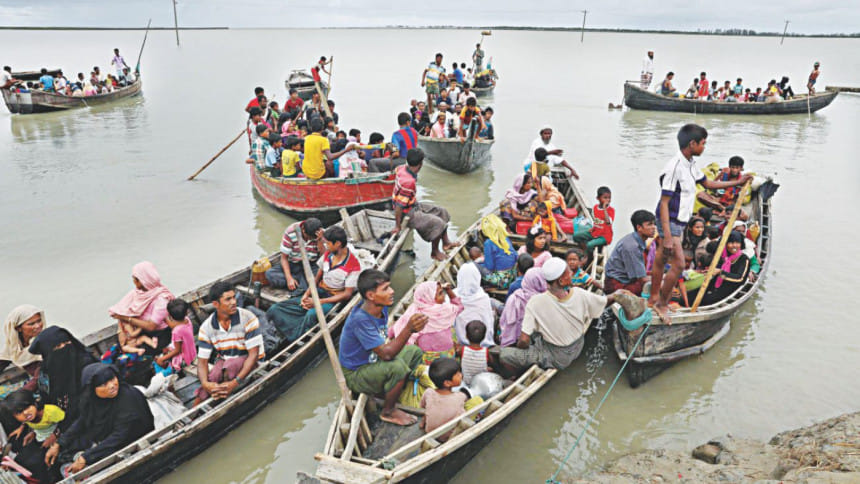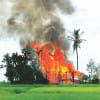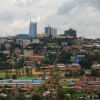A cruel mockery of 'Never Again'

1994 should have been a watershed year in human history; a year to feel ashamed of humanity's failure to stop a genocide that resulted in the deaths of 800,000 mostly Tutsis in Rwanda; a year to mend the mistakes that allowed the atrocities to happen, and to build solid defence against such atrocities in the future; it should have been truly a year of re-learning the lessons from death and destruction.
2017 proved us wrong. Despite several efforts by the UN to build capacities, two reports by the BBC and The Guardian now reveal the UN itself had ignored and suppressed early warning reports of genocide in Myanmar. The UN truly did not learn anything from Rwanda. With the UN system, history repeats itself.
There are just too many similarities in the UN failures in Rwanda and in Myanmar.
In Rwanda, three months before the genocide began, the UN Peacekeeping Mission chief sent a cable to the military advisor to the UN Secretary General warning of the imminent genocide. A month later, the Secretary General's Special Representative sent another warning cable in February.
Meanwhile the UN continued to talk and failed to take any decisive action until Rwanda descended into a period of unbridled atrocity.
In Myanmar's case, the same thing happened. In May, an independent analyst appointed by the UN Myanmar office had reported of "serious deterioration" in the next six months and urged the UN to undertake serious contingency planning. The analyst had sought the UN to apply its human rights upfront initiative strategy to avoid a mass atrocity.
The UN high-ups did not bother to look through the report. Then the massacre of the Rohingyas began. The atrocity in Myanmar unleashed in August 25 has been termed "textbook case of ethnic cleansing" and the "fastest growing humanitarian catastrophe" by the UN itself.
But this should not have been after the case of Rwanda.
Because the UN fully recognized its complete failure in the Rwandan genocide. UN Secretary General Boutros Boutros-Ghali repentantly admitted "all of us are responsible for this failure. It is a genocide which has been committed". A commission was appointed to get deep into the matter and it found the UN system had totally failed to prevent the Rwandan genocide and that new systems were needed to prevent future atrocities.
Soul searching began and reforms were made after the commission's report in 1999.
An Office of Genocide Prevention and the Responsibility to Protect was set up with the task of early warning role. A Framework of Analysis for Atrocity Crimes was drawn up for methodological early warning.
The Secretary General had drawn an action plan to prevent genocide involving the whole UN system.
A Human Rights Upfront Initiative strategy was adopted for early warning on genocide and atrocity.
Sadly, all these initiatives and commitments stumbled in the case of Myanmar, 23 years after Rwanda.
There was an internal call for applying Human Rights Upfront Initiative strategy. It was not done.
Early warning reports were suppressed. And worse still, the UN office in Myanmar had tried to stop human rights activists travelling to Rohingya areas, attempted to shut down public advocacy on the subject and isolated staff who tried to warn that ethnic cleansing might be in the offing.
Bosnia's bloody period of civilian massacre in July 1995 has faded now where the UN had again failed to sound alarm bells. Secretary General Kofi Annan's report in November 1999 said, "…a deliberate and systematic attempt to terrorise, expel or murder an entire people must be met decisively with all necessary means."
And now with Myanmar as the latest case that matches the words of the report to a tee, the promise -- 'Never Again' --that the world made after the Holocaust, sounds like a cruel mockery.

 For all latest news, follow The Daily Star's Google News channel.
For all latest news, follow The Daily Star's Google News channel. 








Comments